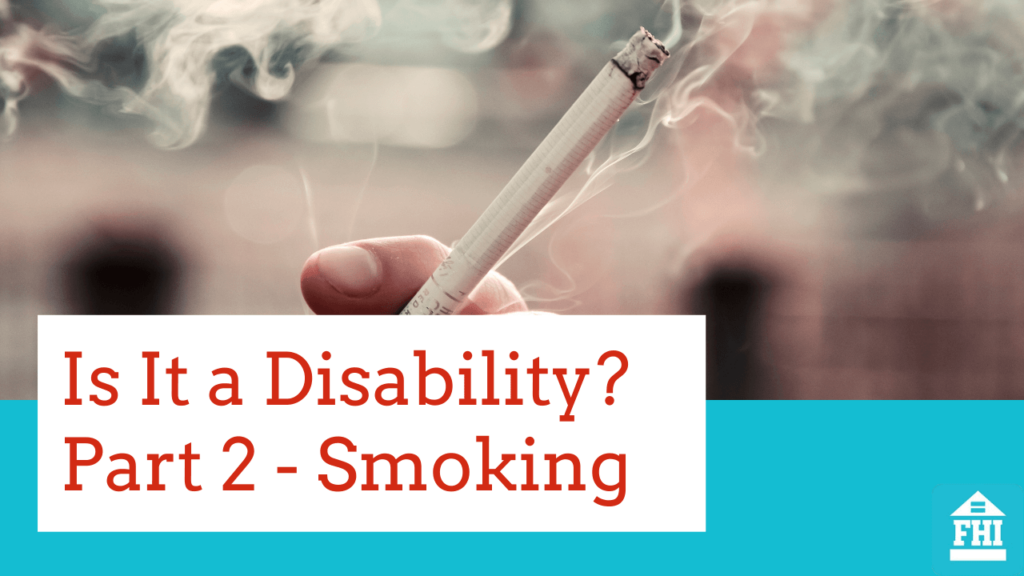In recent years, discussions surrounding the intersection of smoking and disability rights have gained significant attention. As the understanding of disabilities evolves and societal perspectives shift, questions arise regarding whether smoking can be considered a disability under The Fair Housing Act. As debates unfold on this matter, it becomes crucial to delve into the complexities surrounding the classification of smoking as a disability, exploring the legal, health, and social dimensions that shape this multifaceted issue.
Estimated reading time: 3 minutes

Table of contents
Is smoking a disability?
The short answer is, as of right now, smoking is not considered a disability. People can become disabled due to smoking with conditions like Cancer or lung disease. However, the act or habit of smoking itself is not considered a disability.
Why is smoking different from other addictions?
The way the law is currently interpreted, other addictions, such as alcoholism, are viewed as a disability and cannot be discriminated against. Along with that, while the act of abusing drugs is not protected under the law, an individual seeking treatment would be considered disabled and, therefore, again, could not be discriminated against. So while these common addictions are covered to a degree, this protection has never been extended to individuals who engage in or are addicted to smoking.
Can properties make and enforce no-smoking policies?
Once again, the short answer is absolutely! If an owner or property management company wants to go through the steps of prohibiting smoking, whether that just be in the common areas, units, or the entire property, they can. This also applies to federally funded properties. HUD has said that the property owner has the right and the ability to prohibit and enforce a no-smoking policy. Another thing to note is that when it comes to public housing authorities, HUD has instructed them to restrict smoking altogether.
If smoking is prohibited inside units, do properties have to create areas where smoking is permitted?
Again much of that depends on the type of property. If it is a private market property, it is entirely up to them if they want to provide a smoking area. When it comes to federally funded properties, HUD advises that it is a best practice to provide a smoking area. However, this is not considered a requirement.
In conclusion, the question of whether smoking should be considered a disability under The Fair Housing Act is a topic that continues to challenge legal, medical, and societal perspectives. While the act protects individuals with disabilities from discrimination in housing, the classification of smoking as a disability remains a contentious issue. Continuous training can only aid property management professionals as they navigate these somewhat murky waters.
You May Also Like:
